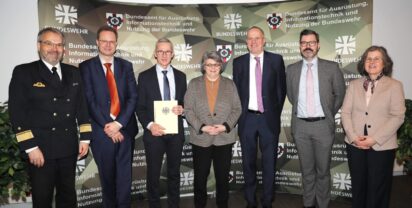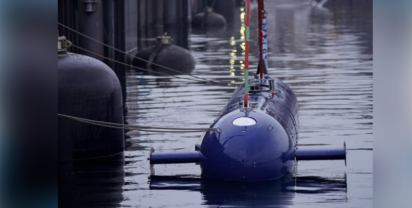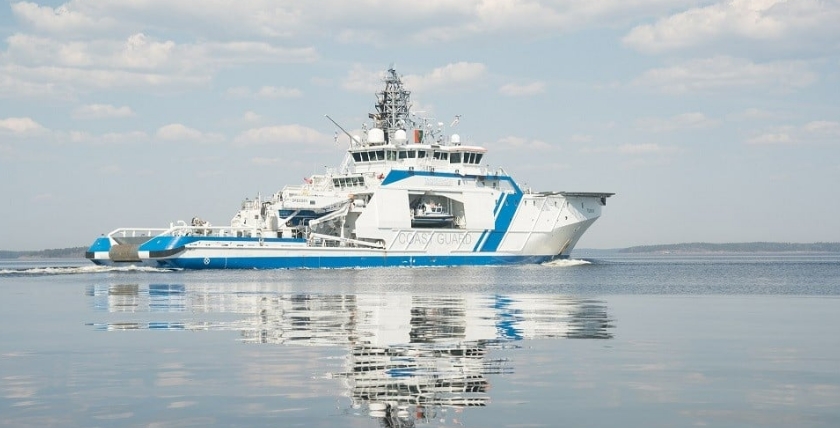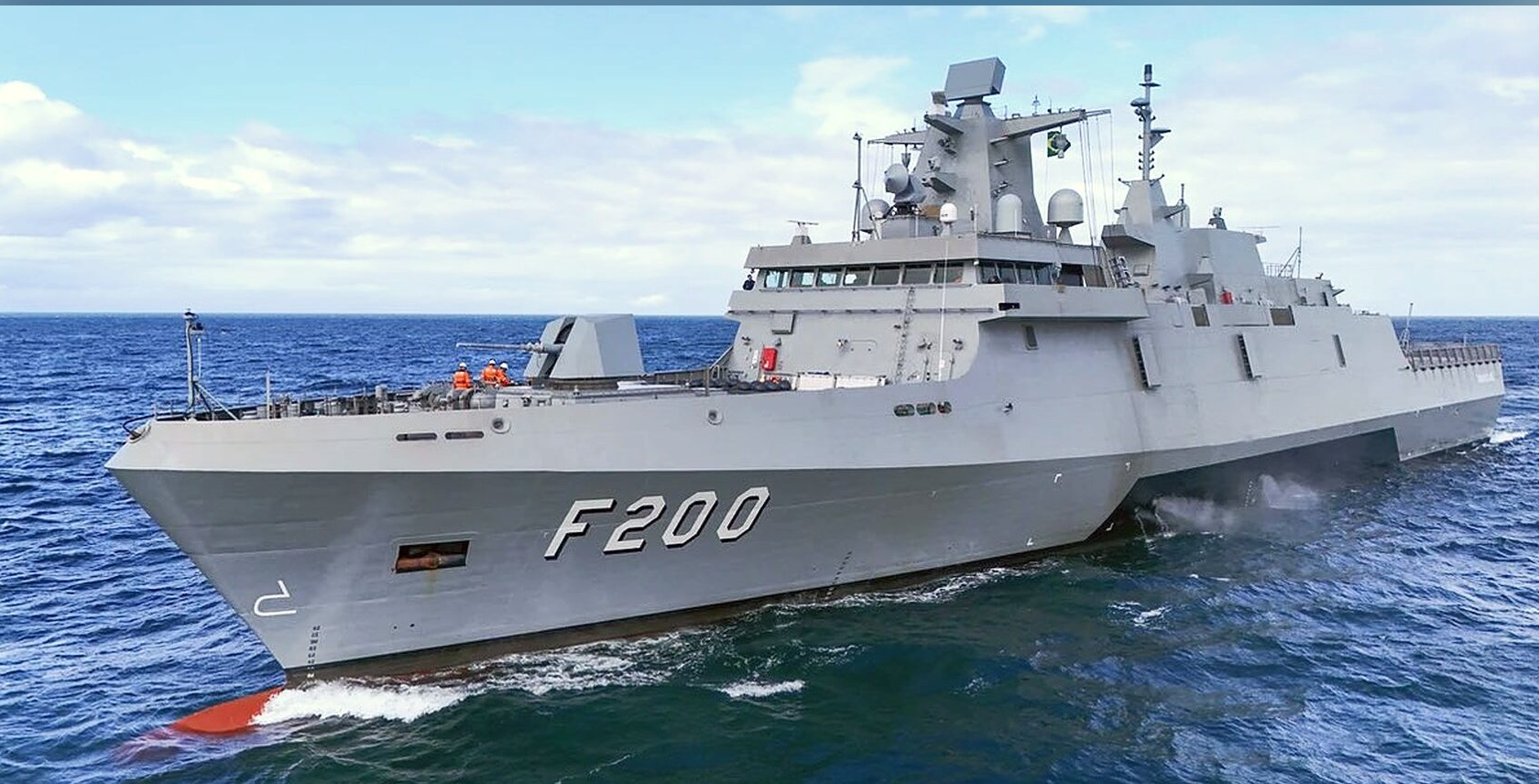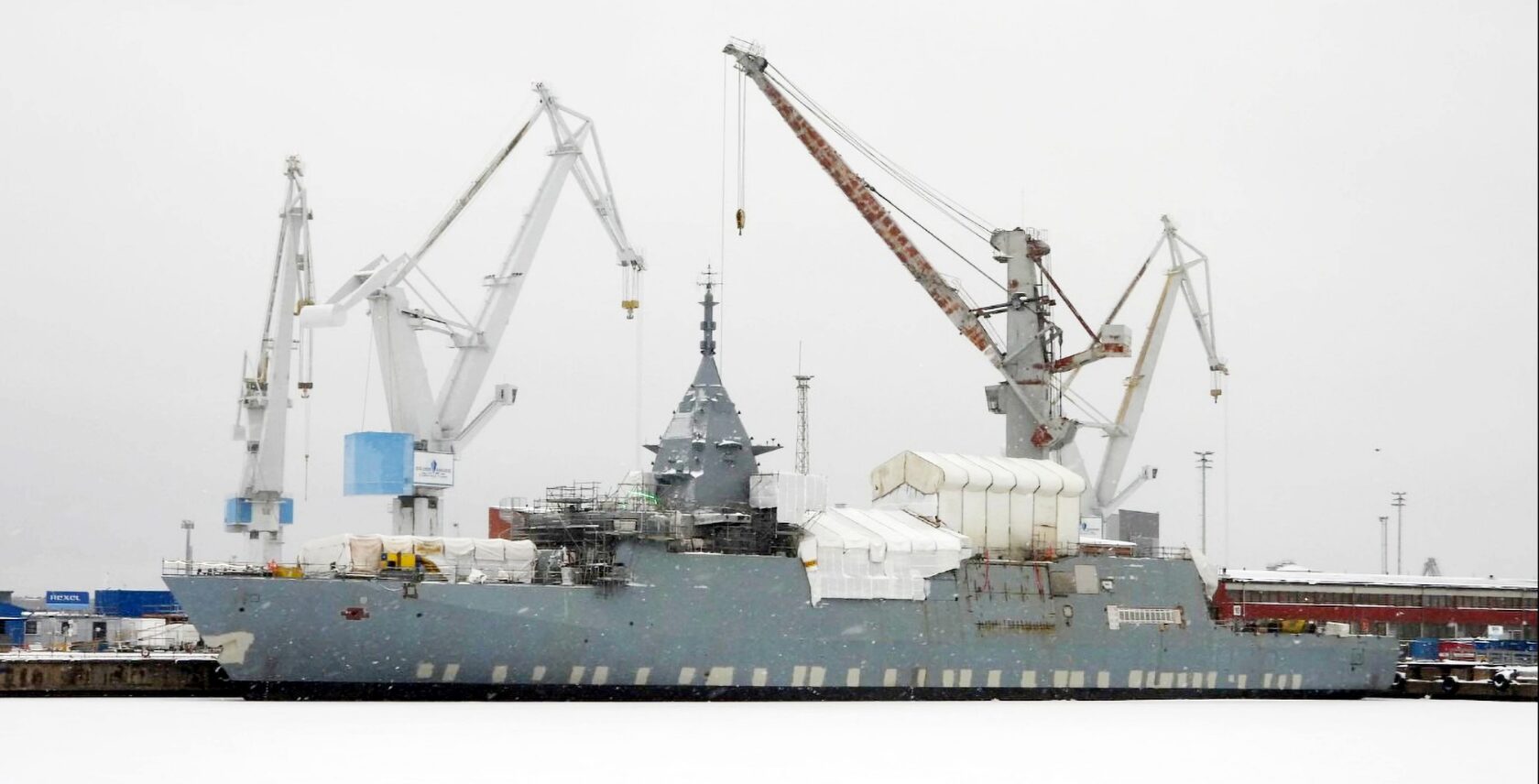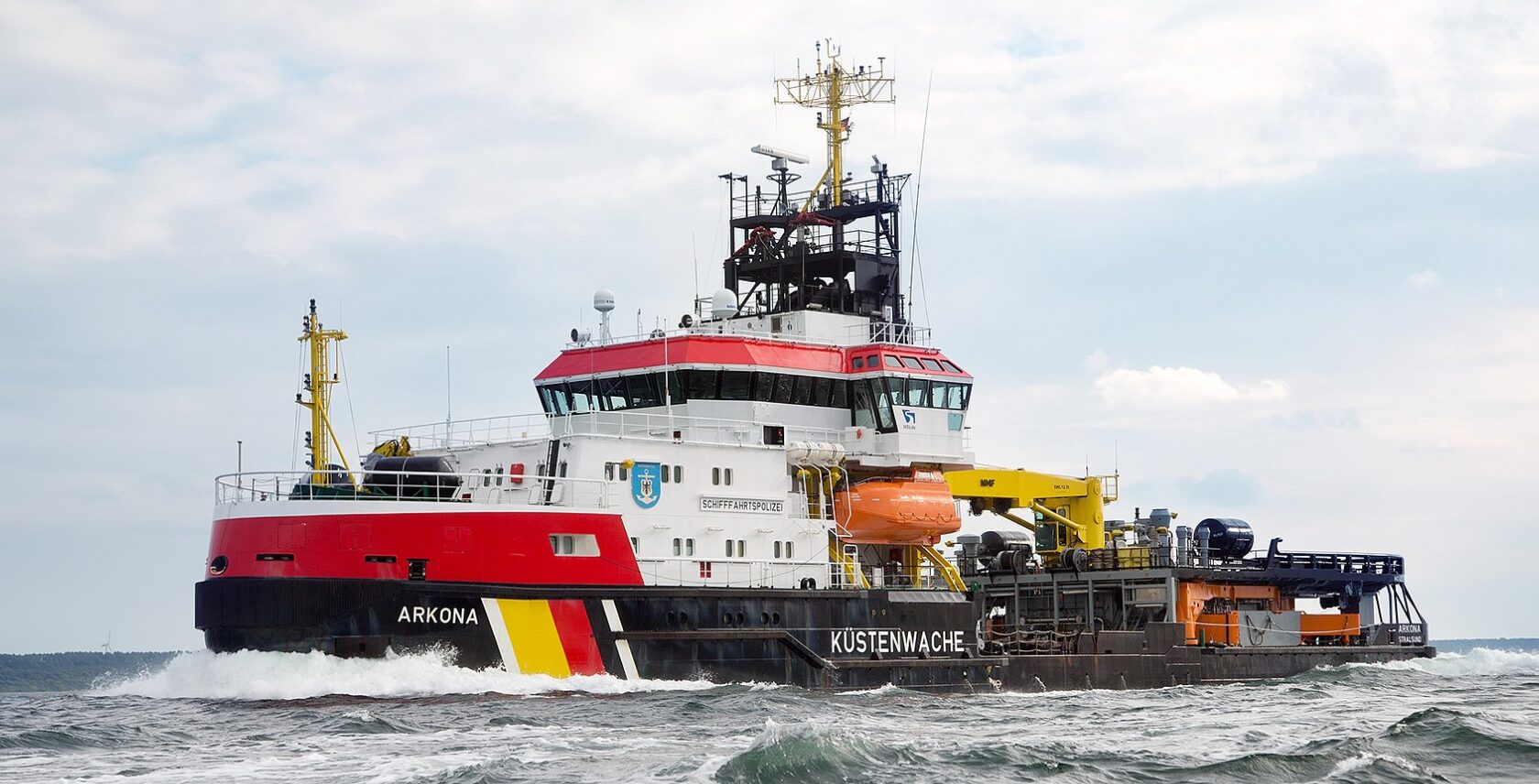Fassmer receives an order from the BAAINBw for four „SAMSe mod“ training boats for the German Navy. Delivery from...
Navy takes over BlueWhale: Today the Inspector of the Navy, Vice Admiral Jan Christian Kaack, took over the first BlueWhale from...
The Bundeswehr Command and Staff College is cooperating with the Munich Security Conference. Agreement on 15 February 2026 at the Hotel Bayerischer...
Paris 2026 puts Germany under pressure: war capability, northern flank, industrial scaling. What the navy and politicians need to deliver now....
EDA defines high-level requirements for the European Combat Vessel: modular frigate family, multi-domain capability, UxV mothership and distributed C2....
Between the Arctic, raw materials and NATO strategy, or Greenland's geopolitical significance: Why the island is of...

The magazine MarineForum is published ten times a year. The publication of the Naval Officers' Association (MOV) is published by the German Maritime Institute (DMI). It is independent, non-partisan and is neither directly nor indirectly supported by ministries or other German authorities. This independence gives the magazine the character of a forum in which contradictory opinions are also discussed.







